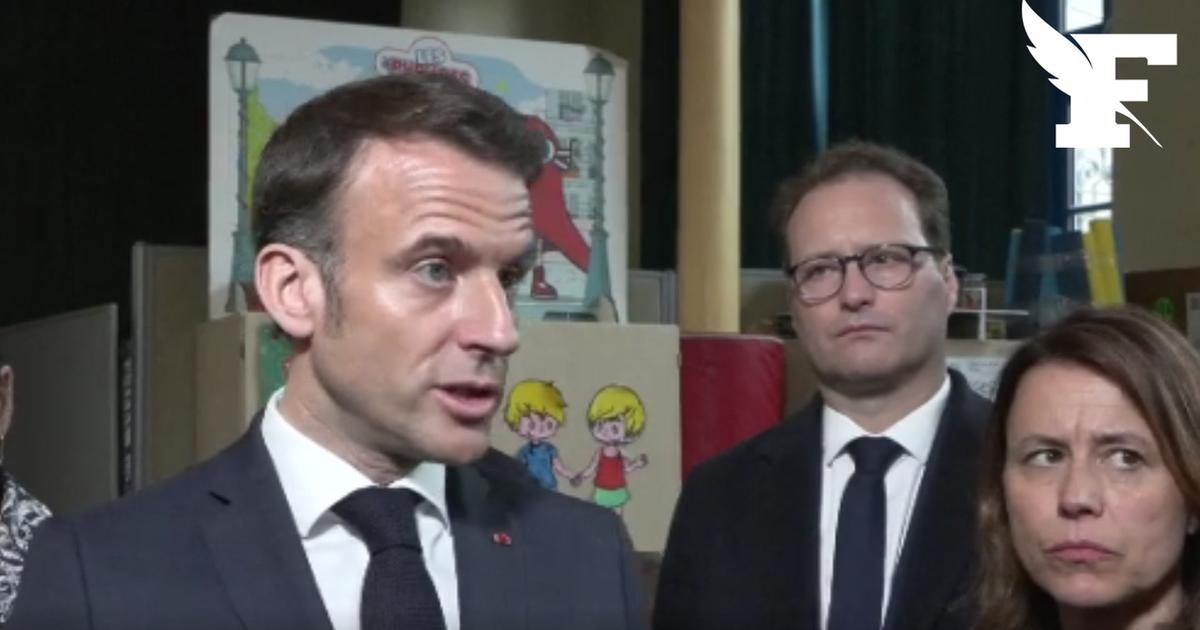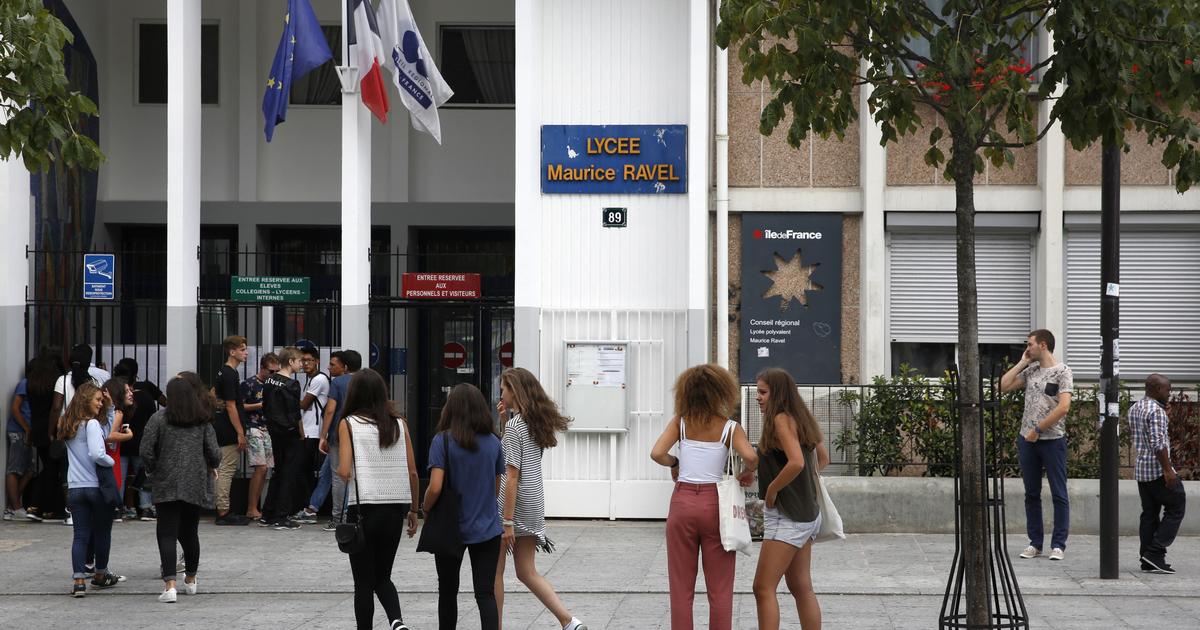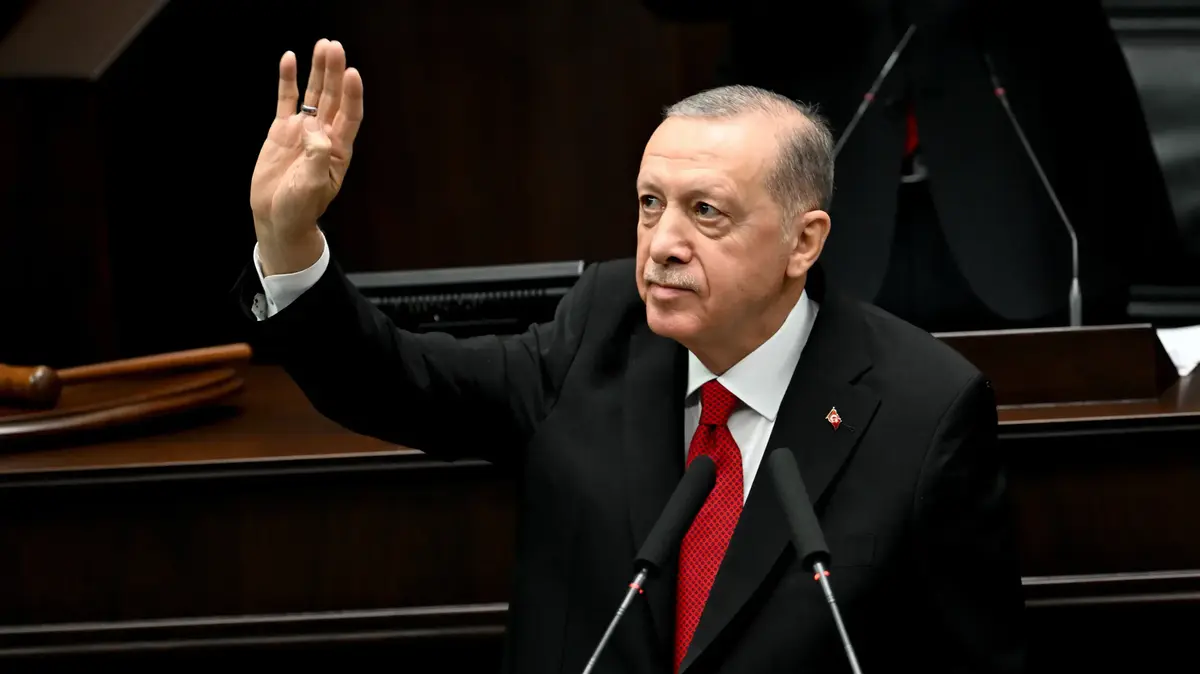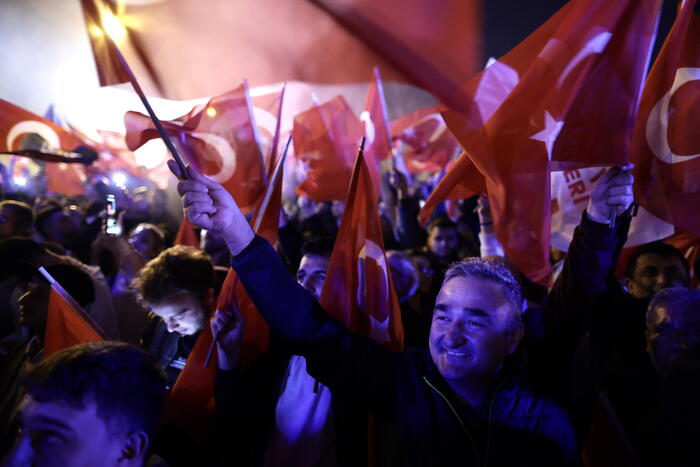A customer walks past a refrigerator from which French products have been recalled in a Kuwait supermarket this Monday.STEPHANIE MCGEHEE / Reuters
Insults, demonstrations and calls to boycott French products has been the response of several countries with a Muslim majority to the measures against Islamism announced by French President Emmanuel Macron after the brutal murder of Professor Samuel Paty, beheaded by a radicalized young jihadist.
Those promoting the protests, led by the Turkish president, accuse the French head of state of being "Islamophobic" and of provoking Muslim believers for no reason.
Despite the campaign uniting Sunni Turkey and Shiite Iran, the mobilization shows a deep division within the Islamic world over the weight of religion in politics.
Turkish President Recep Tayyip Erdogan joined calls to boycott French products on Monday.
"In the same way that in France it is asked not to buy Turkish products, I tell you here: do not buy French brands," said the Islamist leader.
In reality, there is not a French boycott of Turkish products, but on the part of Saudi Arabia, from where it has spread to other countries and caused problems for several Turkish brands and for international producers who manufacture in Turkey.
Erdogan's words are the main endorsement of the campaign aimed at punishing France and which has been launched through social networks under the labels "boycott French products" and "our Prophet is a red line."
The messages accompanied by infographics target well-known brands such as Evian mineral water, Président butter, Peugeot cars or the Carrefour supermarket chain, with great penetration in the countries of the area.
Several food cooperatives in Qatar, Kuwait and Jordan removed French products from their shelves over the weekend in protest at what they see as "insults against Islam and the prophet."
Even the University of Qatar, despite the good relations of that emirate with France, has suspended the celebration of the French Cultural Week.
Additionally, there have been small demonstrations criticizing Macron's policy in front of the Kuwaiti Parliament, in the Gaza Strip, in areas of Libya and Syria under the control of Turkish-backed militias, and even in Istanbul, where they are rarely allowed.
However, there are no signs that the upheaval in the networks has had any effect in Saudi Arabia, the main market in the region, despite the fact that the call for a boycott became a trend on Sunday in that country.
The kingdom, which along with the United Arab Emirates imposed an embargo on Qatar three years ago, has unofficially banned Turkish products in recent weeks amid tension with the Ankara government over its support for Islamist movements in the region.
Turkey is the main Qatari ally in its dispute with Riyadh and Abu Dhabi.
Iran and Pakistan have also joined in the criticism of Macron.
Pakistani Prime Minister Imran Khan, a populist who flirted with the religious vote, has accused him of "attacking Islam."
For his part, the secretary of the Iranian Supreme National Security Council, Ali Shamkhani, has described the behavior of the French president as "irrational" and "politically immature."
"If not, he would not have dared to offend Islam," the leader tweeted this Monday. And to make his message clear, he has even repeated it in French.
The irrational behavior of #Macron dans l'anti-Islamisme evidenced montre sa grossièreté en politique, sinon il n'aurait pas osé offenser l'islam.
The Council of the History and the History of the Country will be reviewed in the South of America # Amérique en déclin et du #sionisme.
- علی شمخانی (@alishamkhani_ir) October 26, 2020
“If you look closely at the countries that are polarizing the issue, they are countries well known for their support for one form or another of political Islam: Turkey, Qatar, Pakistan and Iran.
The reaction of the Islamists protesting the publication of the cartoons that mock Muhammad without showing the slightest empathy for the beheading of a history teacher who was only doing his job, says a lot about the crisis we are facing ”, says Elham Manea, professor Associate of the University of Zurich.
"These countries seem to be betting on a confrontation, a clash of civilizations, since the political Islam they support is based on that vision of the world," adds the academic in an exchange of messages with EL PAÍS.
France decided this Sunday to call its ambassador in Ankara for consultations after Erdogan said the previous days that Macron should undergo "a mental check" for his statements on Islam.
On Monday, the Turkish president returned to the fray, saying that his country is defending European Muslims because "it is becoming increasingly difficult to live as a Muslim in Western countries."
Furthermore, he called on European politicians to "put a stop to Macron, who is leading an anti-Muslim hate campaign in Europe."
But the tension in Franco-Turkish relations goes beyond the specific outbursts of its politicians.
Both countries have embarked on a struggle to extend their area of influence and put an end to that of the other.
France has come out in defense of Cyprus and Greece against the Turkish maneuvers in the Eastern Mediterranean, moving military forces to the region and increasing the sale of arms to Athens.
For its part, Turkey has increased its economic, political and, in some cases, military cooperation with Tunisia, Algeria, Niger and Mali, the traditional
backyard
of French foreign policy.
In addition, both countries support opposing sides in the Libyan war.
Ankara is particularly concerned about France's strategic alliance with the United Arab Emirates - another country with an aggressive foreign policy and with which the Turks have a conflictual relationship - and some local analysts see Macron's new policy against "Islamist separatism. As a continuation of Abu Dhabi's policies against the orbit of the Muslim Brotherhood, a faction of political Islam that Erdogan has been sheltering under his protective cloak for years.
Morocco criticizes cartoons and violence
In Morocco, a country that enjoys excellent diplomatic relations with France, the Foreign Ministry issued a statement on Sunday in which it "vigorously" condemned the publication of "outrageous" cartoons against Islam and the prophet.
The text dismisses those who publish the images as immature and points out that under freedom of expression, "the insulting provocation and injurious offense of the Muslim religion, which has more than 2,000 million faithful in the world, cannot be justified." In the same way that [Morocco] condemns all obscurantist and barbaric violence allegedly perpetrated in the name of Islam, the Kingdom of Morocco stands up against injurious provocations, ”the statement said. France is Morocco's second trading partner, after Spain .
The relationship between Emmanuel Macron and the King of Morocco who acts in the country as commander of the faithful, the country's highest religious authority, has so far been fluid and cordial.
An official visit from Macron is expected in November.
/ FRANCISCO PEREGIL

/cloudfront-eu-central-1.images.arcpublishing.com/prisa/RQ7BTARCXFEGZD4LCNWIBK7TS4.jpg)







